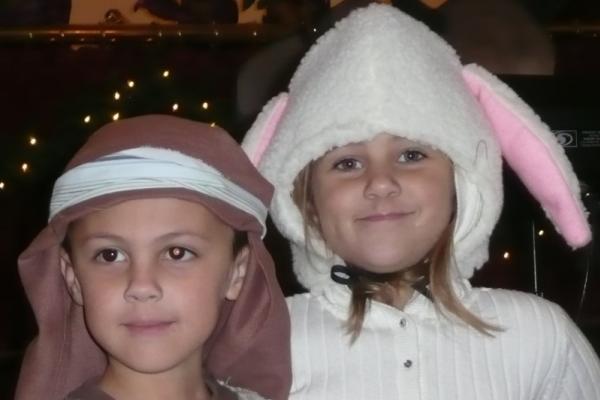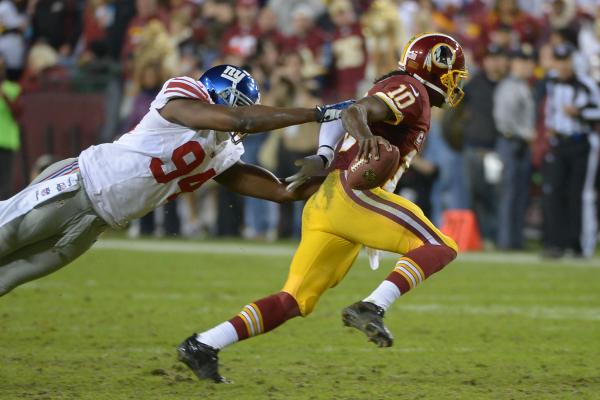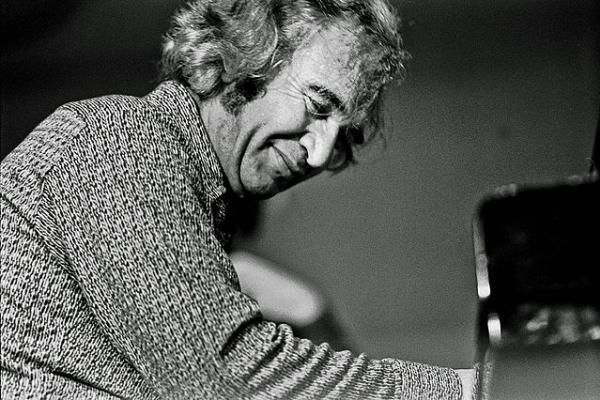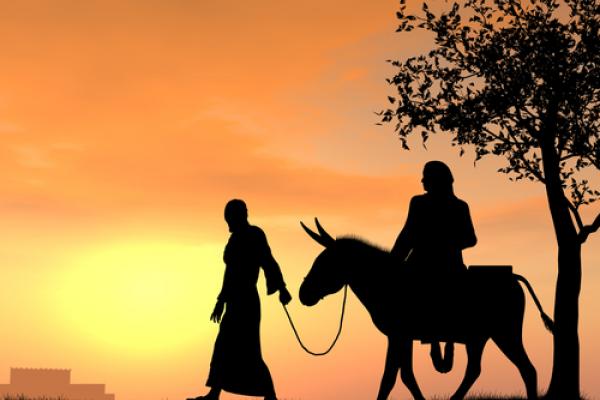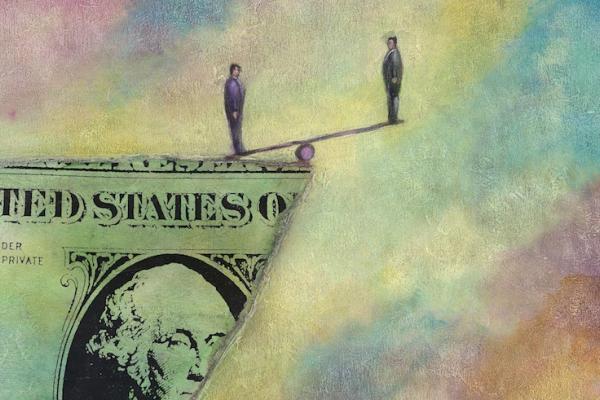A few years ago, I was in a family restaurant that provides drawings for children to color and a bowl full of crayons. Across the aisle was a couple with two young boys. While the parents put in their order, the boys started coloring.
The boy who appeared to be a couple years younger took a crayon and used it, then put it back in the bowl and swapped it for a different color. The older one went about it differently. When he was done with a crayon, he would set it beside him. Soon, he had built up a stash of crayons, some of which his brother needed for his own drawing. The brother complained, and the mother intervened.
You have to share them, she told the older son.
The boy shielded the crayons with his arm and said loudly, "No! These are MY crayons!"
Is there a parent who hasn t had to remind their children that they re not the only ones who matter?
"They re not your crayons," the mother said. "Theyre meant for you to share with your brother."
That moment has stuck with me as a real-life parable about owning and sharing. I thought about it the other day when I saw a bumper sticker on the back of a minivan that said: Don t Share My Wealth, Share My Work Ethic!
There are many ways to celebrate the coming of the light in this dark season of the year, including the Winter Solstice, Hanukah, Kwanza, and Christmas. Christmas is supposedly a Christian holiday, but the orgy of consumption that accompanies this holiday in the United States makes that questionable. How ironic it is that people celebrate the birth of a poor baby born in a stable (as the story goes) by spending billions on "stuff" that will ultimately end up in overflowing landfills. However, Christian or not, many are swept along by the dominant media message: "Buy gifts for your loved ones to show them how much they are loved and how precious they are."
The pressure can be hard to resist.
This may not present a problem for those who practice a Christianity that is conformed to consumer culture, but for those who seek to follow Jesus it challenges us with one of his core teachings: "You cannot serve both God and mammon." Mammon: wealth, riches, money, stuff.
We had literally just paid for our food. It was some takeout place without any seating close to our hotel that the front desk had recommended as the only place still open. I walked outside to enjoy the crisp evening D.C. air, quite different from the still-tepid Arizona evenings we had just left. Next door to the take-out place was a lively dive full of guys deeply invested in the soon-to-end Redskins/Giants game on Monday Night Football. The neon sign in the glass glowed "open." I told my buddy we had made a serious mistake on our dinner choice. Tyler replied, "I already paid, man." "Go and get your money back," I pushed. He said I was more the type to go insult the nice woman behind the counter and cancel our order. It turns out he was right.
Inside the new place, we settled down to a few beers and ordered some finger foods to watch the rest of the football game. Nobody cared that Robert Griffin III was playing a below-average game. You could tell these guys had watched this team before without a good quarterback and now with one - a seriously good one — he would get a pass. The Redskins converted on third down. RGIII could take a knee. The room went nuts.
It was a friendly place; the locals allowed us to be fans with them. The owner came up and brought a little extra food on the house. All told, it was a great American night: Friendly football fans at their favorite neighborhood dive, where everybody knows your name, treating the new guy like your childhood pal. You could imagine the Founding Fathers smiling down upon us.
Except Tyler and I were likely the only native-born dudes in the room. Everybody was cheering on the Redskins in Amharic while we ate injera, tibs, and wat with our fingers and drank St. George Lager. A picture of Haile Selassie and JFK together in a town car framed the wall. I love tibs.
"I approached the composition as a prayer," jazz pianist and composer Dave Brubeck said of his "To Hope! A Celebration," a contemporary setting for the Roman Catholic Mass, "concentrating upon the phrases, trying to probe beneath the surface, hoping to translate into music the powerful words which have grown through the centuries."
Probing beneath the surface marked all of Brubeck’s music, from the revolutionary 1959 polyrhythmic album "Time Out," to his oratorio, "A Light in the Wilderness," and his setting of Thomas Aquinas’ hymn, "Pange Lingua."
Brubeck died on Wednesday of heart failure, a day before his 92nd birthday.
Brubeck is best known in the secular jazz world for his startling compositions using different time signatures, such as 5/4 time in the classic "Take Five," or the mixture of 9/8 time and the more traditional 4/4 rhythm of "Blue Rondo a la Turk." Both pieces are on the "Time Out" album, the first jazz album to sell 1 million copies and still one of the best-selling.
Religious faith, however, was never far from Brubeck’s creative mind.
Advent suggests so many mysteries of God's patience. One rarely commented case is God as Father and embryo. It is extra Biblical so imagination can only begin to tell the bizarre tale. Gabriel's annunciation and appearance to Joseph begins the period of waiting and soul searching, but a remarkable gap exists in the Advent story. Luke 1:56 makes this cursory remark as though it would suffice:
Mary stayed with Elizabeth for about three months and then returned home.
Presumably the second trimester of Mary's pregnancy is treated with a passing reference. If we simply take the divine conception of Jesus at face value, there was a moment in human history where God existed as Father in the heavens and embryo in Mary's uterus. Paradox of paradoxes. The Creator in utero.
Up-and coming-/singer-songwriter Noah Gundersen stopped by the Sojourners office to talk with our Brandon Hook about music, his new album Family, God, and creativity.
The Seattle-based folk artist was recently featured on Spotify’s Emerge app, which pits rising artists against each other based on play frequency, and is currently on a U.S. tour.
Special thanks to Noah for stopping by and being so open with us!
The discussion we are having about “the fiscal cliff” is really a debate about our fiscal soul. What kind of nation do we want to be? We do need a path to fiscal sustainability, but will it include all of us — especially the most vulnerable? It’s a foundational moral choice for the country, and one with dramatic domestic and deadly global implications. It is the most important principle for the faith community in this debate.
I had a recent conversation with an influential senator on these fiscal issues. I said to him, “You and I know the dozen or so senators, from both sides of the aisle, who could sit at your conference table here and find a path to fiscal sustainability, right?”
“Yes,” he said, “we could likely name the senators who would be able to do that.” I added, “And they could protect the principle and the policies that defend the poor and vulnerable, couldn’t they?”
“Yes,” he said, “We could do that too.” “But,” I asked, “Wouldn’t then all the special interests come into this room to each protect their own expenditures; and the end result would be poor people being compromised, right?”
The senator looked us in the eyes and said, “That is exactly what will likely happen.”
It will happen unless we have bipartisan agreement, at least by some on both political sides, to protect the poor and vulnerable in these fiscal decisions — over the next several weeks leading up to Christmas and the New Year, and then for the longer process ahead in 2013.
But for that to be viable, the arithmetic must work.

